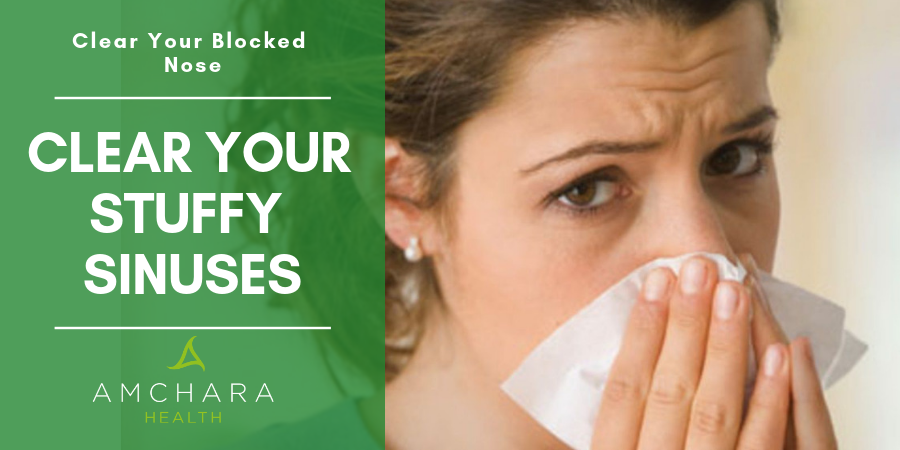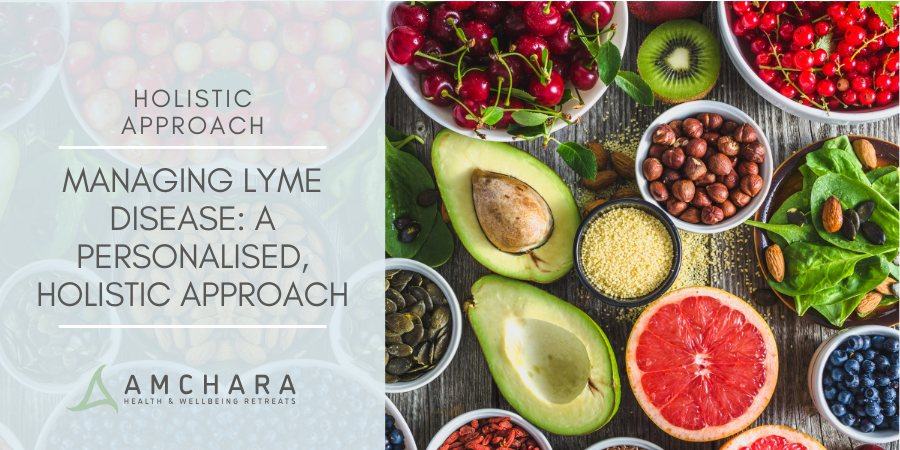Topics Covered in this article:
Don’t let this year’s round of seasonal bugs sabotage your winter plans.
Tap into all that nature has to offer and get rid of those annoying symptoms as quickly as possible.
Blocked noses are fairly common this time of year with the colder weather and so many bugs and viruses around.
An infection can result in congestion, which may also affect your sinuses and leave you with headaches.
You might think having a stuffy nose is just part and parcel of a cold and something you have to just put up with but there are a number of natural remedies that can clear your airways, without having to resort to pharmaceutical drugs that may make you drowsy.
Our mission is to provide you with both insightful information and evidence-based content and we aim to provide you with actionable knowledge and tips to help you on your journey to optimal health.
In this article we’ll take a look into what causes a blocked nose, how you can ease inflammation and mucus build-up, how to support your immune system and some take away tips.
Watch Kerstie Chisholm / Health Director @ Amchara Health Retreats demonstrate & create a simple, natural mucus cough remedy!
Amchara Health Retreats / YouTube [2,141 views]
What causes a blocked nose?
The most common and obvious causes of a blocked nose are a cold, the flu virus, an airborne allergy or in some cases a food allergy.
However if it has been a long term problem (longer than 12 weeks) it may be due to an obstruction in the nose such as a deviated septum, or a more serious medical condition that needs to be investigated. 1
Congestion in the nose happens because the lining of the nasal passage is inflamed and mucus builds up.
Whatever the cause of your blocked nose is, there are measures you can take to relieve it.
Our natural remedies can help to clear your airways so that you can breathe more easily and also support your immune system so that it doesn’t happen so often.
Easing inflammation and reducing mucus build-up
Turmeric
Turmeric is well known as a culinary ingredient but is increasingly being recognised for its biological health-boosting properties.
Curcumin, the constituent extracted from turmeric, exhibits powerful anti-inflammatory activities and it appears to have the ability to suppress the action of inflammatory compounds. 3,5
Animal studies support the therapeutic use of turmeric as an anti-inflammatory.
It has been shown to regulate the progression of virally induced respiratory illness. 4
Quercetin
Quercitin is a member of the bioflavonoid family of plant chemicals and is found in foods such as grapefruit, red wine, apples and onions.
This biologically active compound has been shown to help reduce the formation of inflammatory chemicals and as such can be used as a safe and natural therapy for the control of allergies and inflammation.6
Enzymes
The idea of using enzymes might seem strange as these are mostly associated with food digestion, but actually enzymes carry out thousands of functions in the body including breaking down mucus build up.
This makes them particularly useful for reducing congestion in the nose and sinuses.
Enzymes, such as protease, peptidase, lipase, amylase and cellulase can be found in supplement formulations specifically produced to clear stuffy noses.
Bromelain, which is extracted from pineapples, is also a natural protein-digesting enzyme that may help to break down a build up of excess mucus. 7
Another useful function of bromelain is it can aid the absorption of quercitin, as well as having well documented anti-inflammatory properties. 7
Eucalyptus oil
The Eucalyptus is a fast growing evergreen tree native to Australia.
It is a popular decongestant and incredibly effective.
The fumes from eucalyptus oil can help to break down nasal congestion and clear the sinuses.
According to Dr Mercola’s Natural Health website, eucalyptus oil works by stimulating an immune system response and also has anti-bacterial properties that may help combat pathogenic bacteria in the upper respiratory tract.12
To relieve congestion, the oil can be used by placing a few drops on a handkerchief or adding 10 to 15 drops to a vaporiser or some boiling water.
Salt pipe
For a traditional remedy, it’s worth trying a salt pipe.
Using salt for respiratory conditions stems back thousands of years, when it was common for people to visit salt caves to clear their lungs and airways.
To use a salt pipe you draw air through the mouthpiece which flows over natural salt crystals.
The salty micro-climate calms the cells lining the respiratory system and stimulates the natural cleansing process in the airways.
The salty air inhaled via the salt pipe thins out and reduces build up of mucus in the nose and sinuses, making it easier to breath and potentially helping to ease sinus headaches.
You can read more about salt therapy by visiting ‘plant therapy’ at PlantTherapy.com
Supporting Your Immune system
Maintaining a healthy immune system is key for warding off winter bugs.
There’s a range of vitamins, minerals and plant phytochemicals that exert powerful therapeutic effects.
Having any of the following on hand can really bolster your immune function:
Vitamin C
This old favourite has a well deserved reputation as studies have proven that it can reduce the duration and severity of the common cold. 15
- Large doses of vitamin C have been found to assist in the production of substances that are needed to activate the immune system against viruses.
- Several cells of the immune system accumulate vitamin C and need it to perform their tasks.
- Topping up vitamin C enhances many immune system functions and has been found to elevate the production and function of specific white blood cells that the body uses to round up and destroy invading bacteria and viruses. 14
- Vitamin C has been found to block the pathways that lead to elimination of T-cells that are so important for attacking infection.
- During infections, vitamin C concentrations in the blood plasma and white blood cells decline. 14
- A deficiency in vitamin C results in a reduced resistance to certain pathogens.
- Vitamin C’s powerful antioxidant activities protects cells from free radical damage generated during inflammatory conditions such as colds and flu.
- Vitamin C and the Brain Connection
Zinc
Zinc plays a vital role in immune system function and is well documented for its use as a therapy against the common cold.
Research has shown that if zinc is administered within 24 hours of the onset of symptoms it reduces the duration and severity of the common cold in healthy people.8
If you want to be sure you have enough zinc in the winter months make sure you eat plenty of meat, poultry, fish, beans and cheese.
One of the best sources of zinc is oysters. 9
Echinacea
You may be familiar with echinacea as it is often used around this time of year when colds and flu are lurking around every corner.
But if you’re not it’s particularly worth stocking up with some echinacea during the winter season.
- Although echinacea is grown natively in America it is now also cultivated in Britain.
- According to studies, compounds found in echinacea increase the amount of circulating white blood cells, whose job is to destroy bacteria and viruses. 10
- So, in effect, echinacea stimulates an immune response rather than directly killing off the bugs.
- Research suggests that echinacea works best if taken at the first signs of a cold when it can be most effective.
- Studies show that echinacea not only shortens the duration of a cold but also reduces the severity of the symptoms of those suffering with colds and respiratory tract illness.11
Beta Glucans
Who’d have thought that something as simple as a mushroom could influence the immune system.
But in fact beta glucans, which are constituents derived from mushrooms like shitake, reishi and maitake, have been used for thousands of years in Eastern countries because of their healing properties.
The biologically active properties of the polysaccharides found in mushrooms have been found to increase immune defences by enhancing natural killer cell function. 13
Take away tips
Dairy foods such as milk cheese butter and yoghurt can sometimes promote mucus production and may be best reduced or avoided.
If you suspect that food may be playing a role in your stuffy nose, it may be worth taking a food intolerance test.
This involves nothing more than a simple pin prick blood sample to identify which foods may be problematic.
You can find more information about these tests at Amchara Health 360.
READ NEXT:






